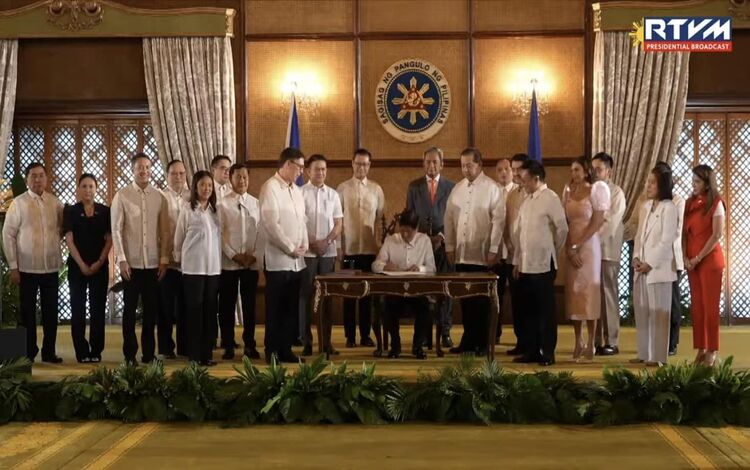President Ferdinand Marcos Jr. officially signed into law the Value Added Tax (VAT) on Digital Services Act, also known as Republic Act No. 12023, on Wednesday, October 2, 2024. This significant legislation imposes a 12% VAT on foreign digital service providers, marking a key step toward generating additional revenue for the government and leveling the playing field for local digital service providers.

The new law covers a wide range of non-resident digital service providers (DSPs), which include online search engines, online marketplaces, cloud services, online media, and advertising platforms, as well as online platforms selling digital goods. The government expects the law to contribute to its revenue streams while encouraging competition in the digital economy.
President Marcos highlighted that this law is crucial for modernizing the tax system in response to the evolving digital economy. “The rapid growth of digital services in the country necessitates that we align our tax policies to ensure fair competition between foreign and local players in the market. This law is a step toward equity and ensuring that the Philippines benefits from this booming industry,” he said during the signing ceremony.
Republic Act No. 12023, which now mandates foreign DSPs to pay a 12% VAT for services consumed within the Philippines, has been praised for addressing the long-standing issue of foreign digital platforms enjoying tax exemptions. These platforms, despite their widespread use in the country, were previously not subject to the same taxes as local providers.
The law covers a variety of services, including but not limited to digital advertising on social media platforms, subscriptions to streaming services, online purchases of software, and access to digital goods such as e-books and games. Online marketplaces facilitating the sale of goods and services through digital platforms will also be affected.
Finance Secretary Benjamin Diokno previously emphasized that the law would help shore up revenues, which could be used to fund government programs, particularly in education and infrastructure. He also assured the public that the additional taxes would not burden consumers, as these foreign companies have already been profiting from their operations in the country.
The implementation of this law is expected to commence within the next few months, as the Bureau of Internal Revenue (BIR) finalizes the guidelines for proper enforcement and compliance by digital service providers.
